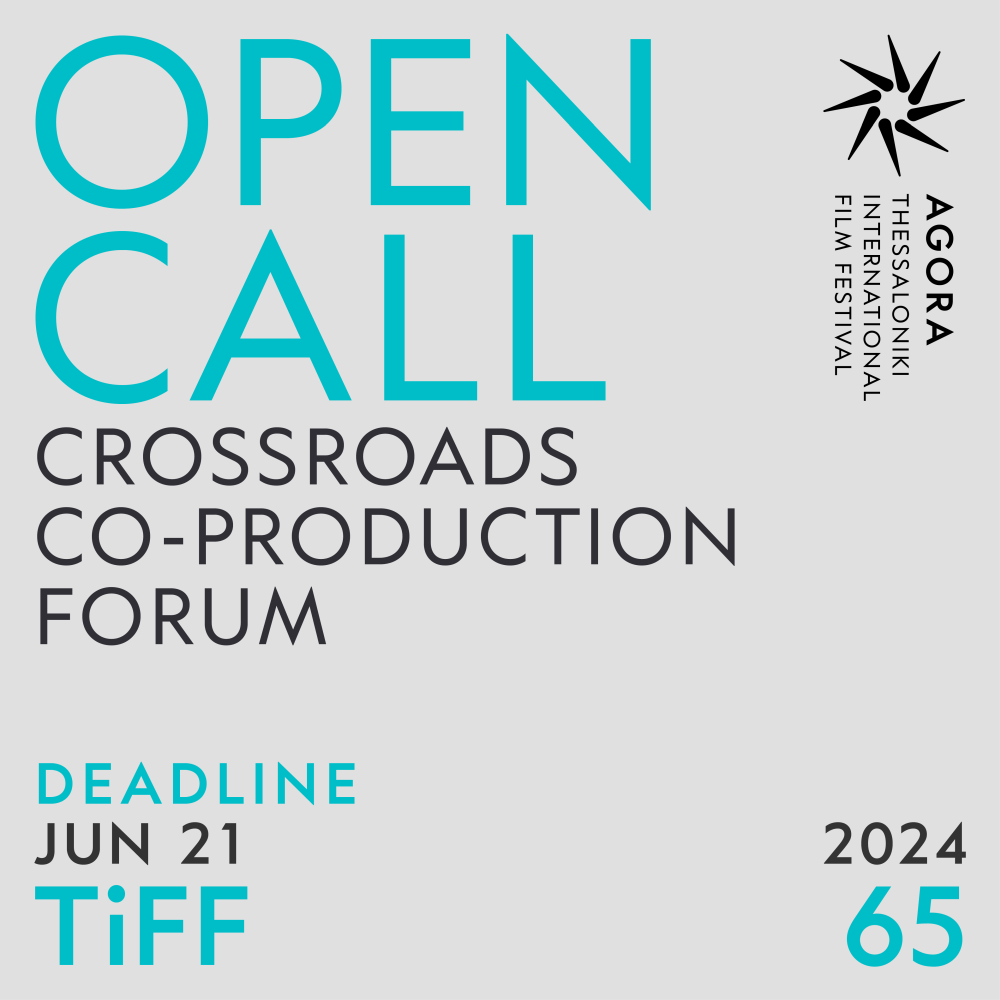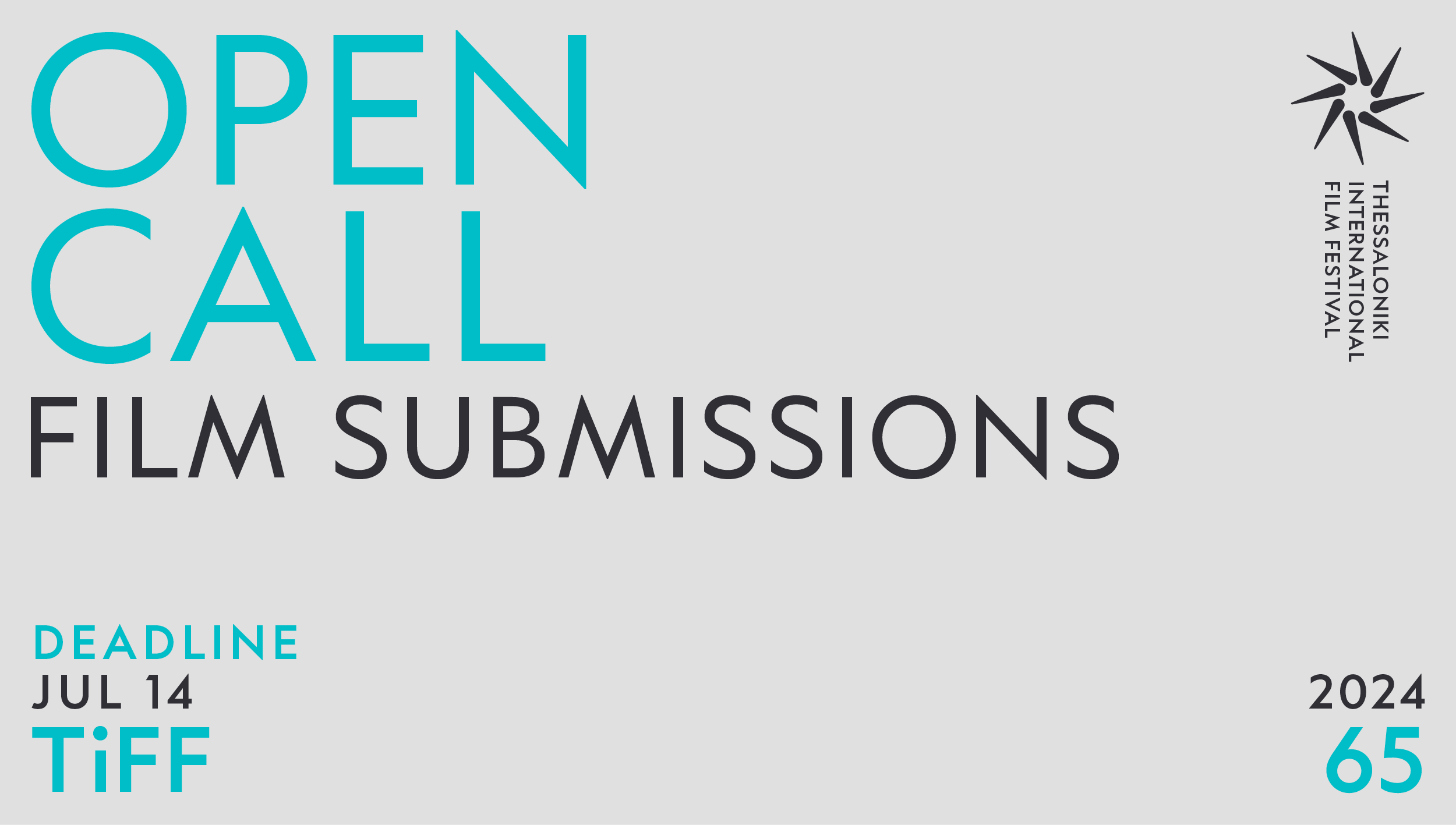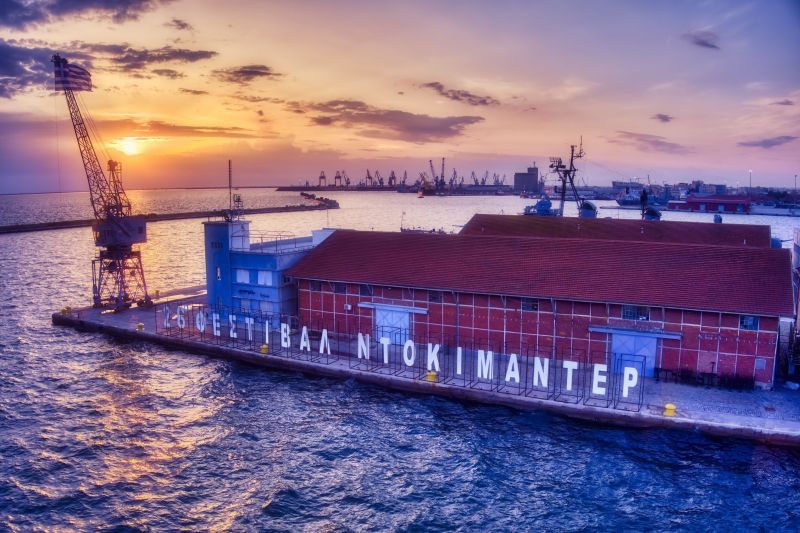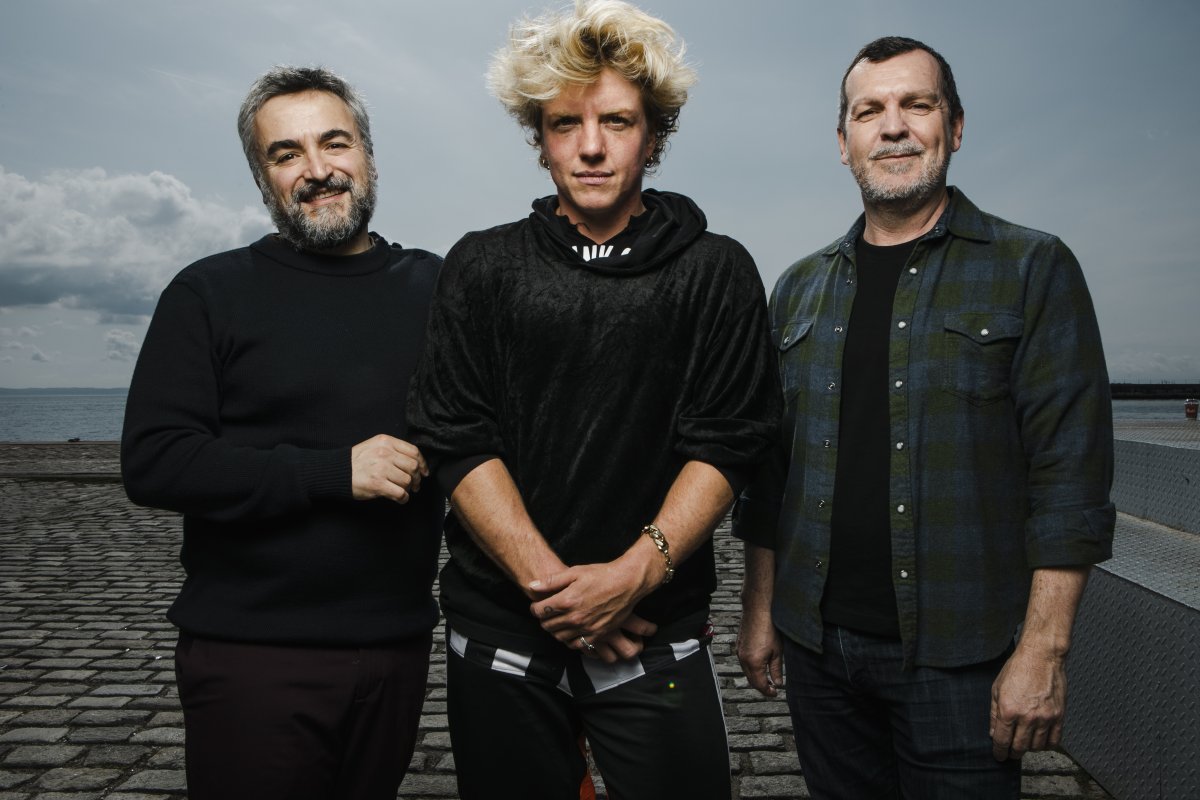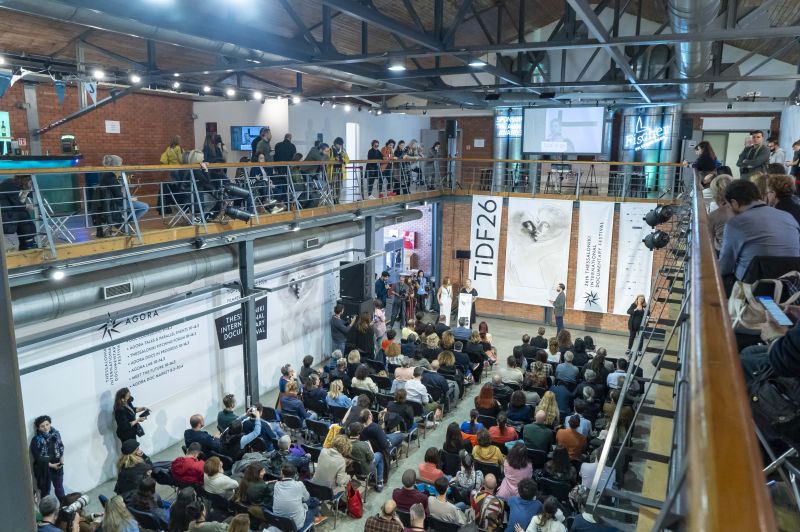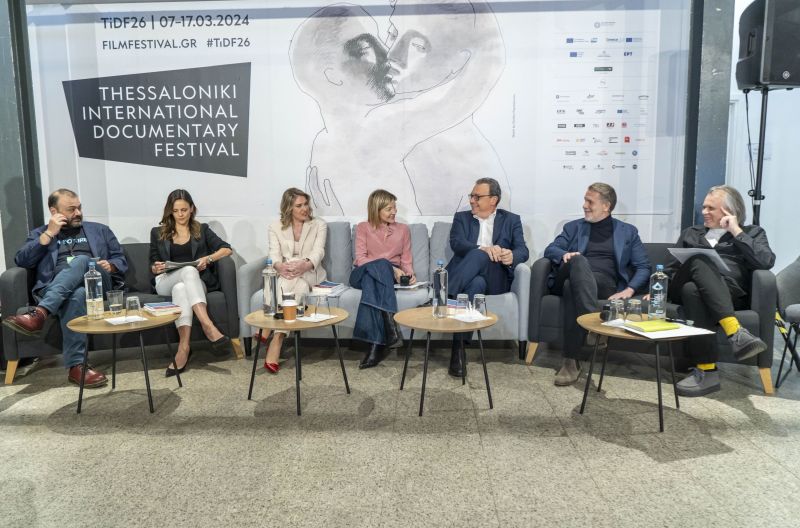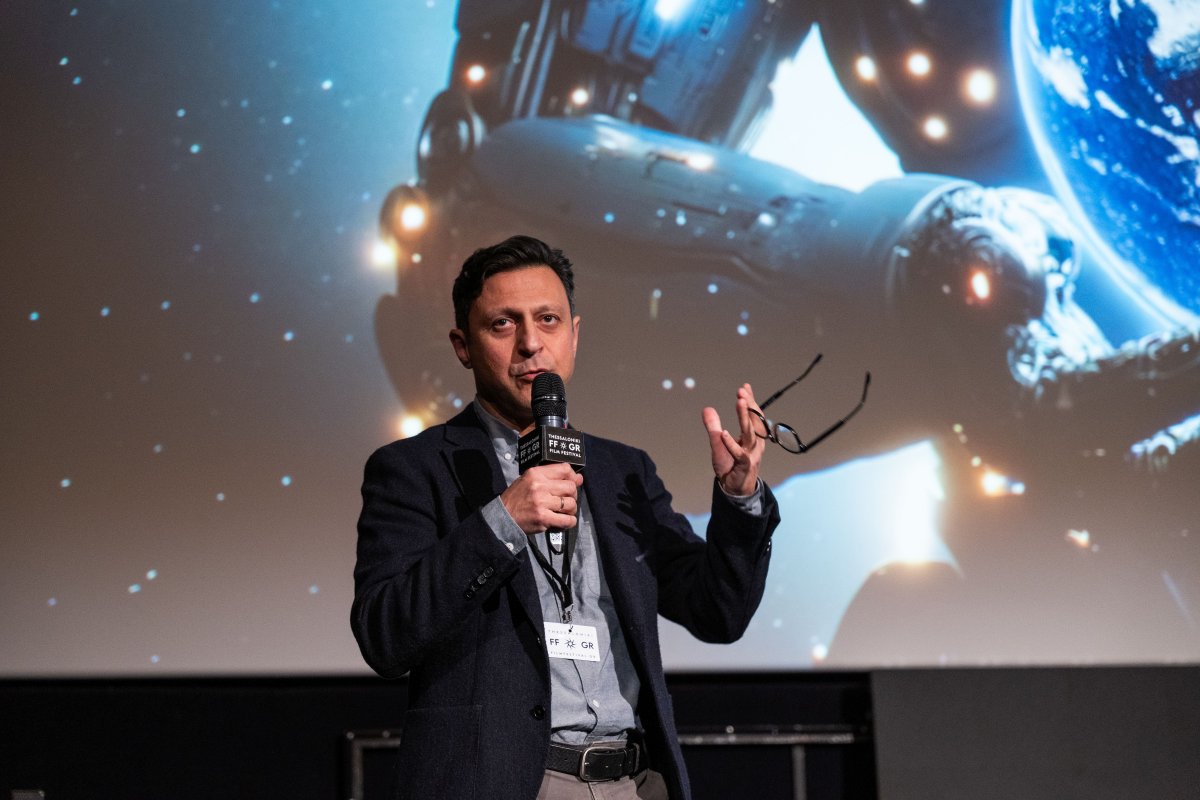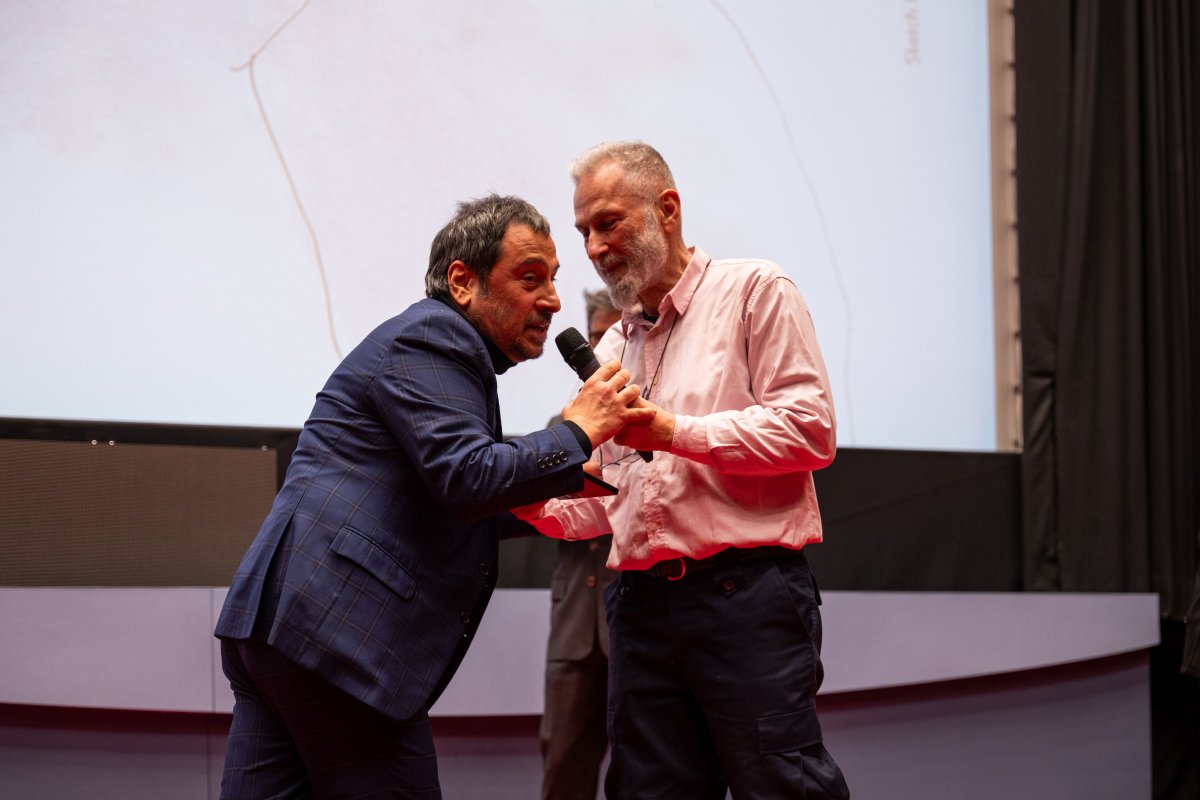JUST TALKING 17/11
The Just Talking conversation held on Monday, November 17th, at the Old Pump Station of Thessaloniki’s Port focused on man’s self-destructive nature and the political aspect of cinema.
The discussion panel consisted of Nandita Das, director of the film Firaaq (International Competition), Adrian Sitaru, director of the film Hooked (International Competition), Huseyin Karabey, director of the film My Marlon and Brando (Balkan Survey) and Yorgos Servetas, director of the film The way things are determined (DigitalWave).
‘I wanted to change the film cliches we are used to seeing in cinema’, admitted Huseyin Karabey. ‘Film characters usually travel from East to the West to find happiness. However, in my film a western girl travels to the East in order to find happiness. Furthermore, in the case of love stories, men are usually the ones who are chasing the girl; in my film it’s exactly the opposite. I also wanted to communicate what war is without showing any scenes of violence. I am more interested in creating questions rather than providing answers. I examine the circumstances which lead to difficult situations rather than the way we act when we are already in them. I have done some work on human rights and filmed documentaries on the subject. Life is political. It’s not me who chooses to be political. Once, for example, I filmed a story about a mother looking for her son, a story which could have happened anywhere. However, in the case of my country, the son had disappeared due to political corruption and consequently, the mother became political. I have been asked why I make political films and not love stories. My answer was that I might make a love story but it would turn out to be political!’
‘Every time I try to talk about a film, it gets harder’, noted George Servetas. ‘My film is about the impossibility of a relationship due to work conditions. Every character in the film faces the shock that he must define himself within their work. As a result, my protagonists lose their dignity. I’m not sure if man is self-destructive. Destruction is always followed by creation. However, I believe that politics is everywhere. I even consider Bergman a political filmmaker. According to my opinion there are two categories of films: The political ones and the utopian ones, which present a perfect version of the world’.
‘Firaaq takes place in Goudjarat a month after the social unrest and that’s the reason why you don’t get to see any scenes of war’, added Nandita Das. ‘It shows what is left behind when violence comes to an end. Everybody has a dark, negative side. For example, in the slaughter of 2002, many neighbours who knew each other for years couldn’t believe that people they knew for so long could act so violently or even kill somebody. The human mind is an extremely interesting and complicated thing and that is why so many films have been made and so many books have been written. This is our reality and when you react to it, you certainly become political. Firaaq is a personal and political film at the same time. It’s a film about human relations in a political background. You shouldn’t impose your politics because you will end up being didactic, but on the other hand, if you ignore them your film will be taking place in vacuum’.
‘Hooked isn’t a love story, but a film about what love is’, commented Adrian Sitaru. ‘What I discovered during the shooting is that man is the most self-destructive species, not only because we smoke and don’t pay attention to what we eat, but also because we tend to ruin our own relationships. I see this everywhere, in my family environment and my friends. Relations don’t function well and we are the ones to blame. I don’t know why this is happening, but I try to discover it with my films. Although politics never interested me in my films, I understand their power and influence in our behavior’.



